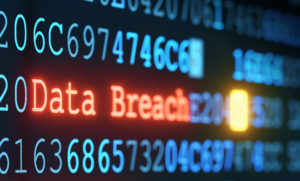 While the Equifax credit breach has added a sense of urgency to the process, we believe it is always a good idea to practice safe on-line behavior.
While the Equifax credit breach has added a sense of urgency to the process, we believe it is always a good idea to practice safe on-line behavior.
We offer the following tips to help you protect your accounts while still enjoying the convenience of on-line access.
- Be vigilant about safeguarding your information. Shred old documents containing your personal information, including credit card receipts and applications.
- Limit the number of credit cards you use. The more accounts you open, the more accounts you have to monitor. In most cases, it is better to pass on the extra 20% a salesclerk offers you to open an in-store credit card.
- Monitor your credit card accounts carefully. Often, thieves will test an account with a small purchase of less than $10. If that goes through, they move on to the expensive purchases. While major credit card companies do a pretty good job of alerting you to suspicious behavior on your account, it is still in your best interest to catch fraudulent behavior as quickly as possible, before any large scale purchases go through.
- Take advantage of the free annual credit report offered by Equifax, Experian and/or TransUnion.
- Request fraud alerts from all three of these companies as well. This will make it harder for anyone to obtain credit under your name using stolen identification.
- Consider a “security freeze” on your account at all three agencies. This will prevent any new lines of credit from being issued (as long as the lender checks with one of these credit-reporting agencies).
- Change your passwords often and make them as complex as you can (and still remember them). We suggest storing your passwords on a password protected document on your own computer. Do not store them as a Google doc, or anywhere else in the cloud. (A list of these passwords should also be kept in a safe or safety deposit box along with other important estate planning documents).
- Check your financial statements and banking documents for any unusual activity.
If you feel your information has been breached, contact your bank and credit card companies immediately. If you’re worried you may have been a victim of the Equifax breach, you can click here to see if your information may have been compromised. If you have any questions, please call the office. We’ll be glad help.